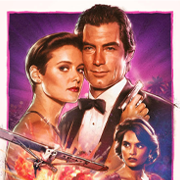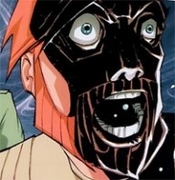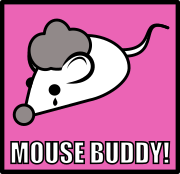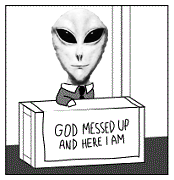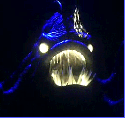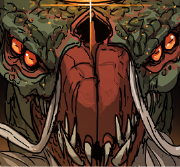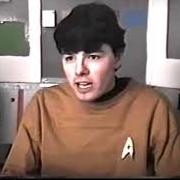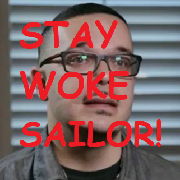|
The biggest inconsistencies are in Hobbiton: lobelia Sackville baggins uses an umbrella and the fireworks at the party are described as "like an express train". But it makes sense thematically and you don't notice because the story is moving you back in time from edwardian hobbiton through elronds high medieval house to the dark age of Moria and the Saxon rohirrim and then Roman Gondor. If denethor whipped out an umbrella it would be bizarre and jarring but it's fine when lobelia does it.
|
|
|
|
|

|
| # ? May 19, 2024 21:43 |
|
Omnomnomnivore posted:Isn't the famous inconsistency whether or not elves ride horses with saddles? I think someone wrote him a letter about it and he copped to messing that up in different places. It’s bits, I think. He agreed upon reflection that an elf wouldn’t give a horse a bit because it hurts the horse (or something, I don’t know anything about horse stuff) Hieronymous Alloy posted:lobelia Sackville baggins uses an umbrella I’m sure Tolkien was thinking of modern referents here but umbrellas as ladies’ accoutrement aren’t as anachronistic as express trains—they date back to antiquity! skasion fucked around with this message at 21:04 on Jan 31, 2024 |
|
|
|
I always love the paragraph where a fox comes across the Hobbits at the start of their journey and thinks about how weird it is but just moves on.
|
|
|
|
sleep with the vicious posted:I always love the paragraph where a fox comes across the Hobbits at the start of their journey and thinks about how weird it is but just moves on. Same! Such a funny little aside.
|
|
|
|
Quantum of Phallus posted:Hey thread, does anyone know if there's a readily-available edition of LOTR to reference the page numbers with the The Lord of the Rings: A Reader's Companion 2nd edition? Paperback is fine. Thanks! any help plz 👀
|
|
|
|
What's the deal with beorn? Is he a man who's also magic or what
|
|
|
|
He's a bear man named Bear who turns into a bear and has a house full of honey jars.
|
|
|
|
But is he a bear that is sometimes human or a human that is sometimes a bear.
|
|
|
|
|
I'll start reading all Middle-Earth books when I finish the rest of Stormlight Archive, but I thought of everyone in this thread when I visited this place a couple of weeks ago.
|
|
|
|
Alhazred posted:But is he a bear that is sometimes human or a human that is sometimes a bear. Yes.
|
|
|
|
Oh bother...
|
|
|
|
I feel like a man bear wouldnt have all those animals but a bear man for sure would
|
|
|
|
If I had to put money on it I’d go with “man who is sometimes a bear”. Since after the events of the Hobbit he sires a son named Grimbeorn who becomes a mannish king in the north east. Now why can he become a bear? Curse? Hobbit style divergence from mainstream man? Something something ancient elven craftsmanship something something bear skin cloak taken from the vaults of Feanor in the Elder Days?
|
|
|
galagazombie posted:If I had to put money on it I’d go with “man who is sometimes a bear”. Since after the events of the Hobbit he sires a son named Grimbeorn who becomes a mannish king in the north east. Now why can he become a bear? Curse? Hobbit style divergence from mainstream man? Something something ancient elven craftsmanship something something bear skin cloak taken from the vaults of Feanor in the Elder Days?
|
|
|
|
|
I have several “man who is sometimes a bear” friends, though I don’t think many of them will have children
|
|
|
|
'Hinder me? Thou fool. No living man may hinder me!' Then Merry heard of all sounds in that hour the strangest. It seemed that Bernhelm laughed, and the gruff voice was like claws on bark. "And what did this prophecy say of bears?"
|
|
|
|
I always just assumed Beorn was a Maia, cause they were the only other shape changers mentioned.
|
|
|
|
He was just Beorn this way.
|
|
|
|
Diamonds On MY Fish posted:I always just assumed Beorn was a Maia, cause they were the only other shape changers mentioned. Nah, if he was a Maia Gandalf wouldn't have had to approach him in such a ridiculously circuitous fashion, because they would have known each other. There is a lot of stuff in Tolkien that is just classified as 'something else,' and it defies most attempts to put it in a clear hierarchy of magical beings.
|
|
|
|
He grows old and dies, so "maia" is out. But I think the best explanation of how he can do shapechange magic is that he has some maia blood. Somewhere in the past, one of his ancestors hosed a bear spirit.
|
|
|
|
he's a guy who can turn into a bear, or possibly a bear that can turn into a guy. seems straightforward to me
|
|
|
|
I do think there's merit in my "magic animal skin" theory. If not in-universe then at least in inspiration. There's a recurring motif in the Northern European folklore Tolkien was building on where people transform into an animal by wearing some kind of cloak or cape or similar. Selkies, Norse Saga Werewolves, In fact the way Luthien uses Thuringwethil's "cloak" to take her shape is rather suspicious in this light. Not saying Luthien wears peoples flayed skin, but still.
|
|
|
|
Hi, everybody, I'm finally trying to make it through the Silmarillion again, after giving up a couple chapters in decades ago with a translation. After hearing a bit about how terrible the Noldor were and how much they hosed various things up, I'm a bit distressed to find that just about all of the really big-deal elves I've heard of are actually Noldor, and also most of the Silmarillion seems to be about Noldor adventures which, okay, I could have seen coming given the name. Also I was very surprised to learn that the whole "elves should leave Middle-earth and go to Valinor" thing happened basically at the beginning of history, that just feels super weird because what is the point of introducing a ton of potential characters and then being like "and most of them went home and did nothing worth writing about whatsoever". And then, though I was kind of aware that there used to be some landmass that got sunk into the ocean for some reason or other, I really didn't see it coming that apparently they're going to have all the act 1 history on that landmass and then it disappears and all remaining history is on the next landmass, like you're getting to the next map in a videogame. That seems so wild, I kinda thought Beleriand and Eriador would overlap a ton more and I was just too stupid to find any common landmarks on them aps. Also, as a kid I thought Túrin Turambar was the dumbest name ever and now it somehow sounds really cool to me (even though I still haven't read anything about what he was actually up to). Lots of surprises already and I'm only to the part where, after I'd finally broken down and reread a good chunk while poring over the Beleriand map to figure out where all the rear end in a top hat elves were hanging out, there's apparently a chapter that's pretty much the map in prose. Okay, I have a question that I feel I'm not going to get an answer to in the book any time soon: When the Valar banished the Noldor who participated in the Kinslaying and did not, like, immediately turn around and repent, did that ban extend to all those Noldor's descendents? Does that ever come up, or do the Noldor just not have any kids until the ban is lifted anyway? Also do I have to assume every named Noldor, like, say, Galadriel, who goes on to Middle-earth personally murdered one or more Teleri at that point, or can I pretend that a bunch of them just went along passively like, watching the whole thing go down from a distance and going well, that was hosed up but might as well get on the ships now? How do people (like, in this thread, not the Noldor) generally feel about the Valar policy decisions like not going after Morgoth at all for the longest time? I understand the idea is that they previously went to war and there was some amount of collateral damage and they didn't want any more of that, but just doing near nothing is also kind of hosed up, right? There has to be a middle ground between annihilating continents and, idk, leaving the moriquendi at the mercy of Morgoth? How many elves were there during the initial great journey to Valinor? Are we still talking about a population of few dozen to a couple hundred by the time the Teleri get ferried over? How many Noldor returned to Middle-earth? I'm sure there are no exact numbers given but what order of magnitude feels right to people?
|
|
|
DontMockMySmock posted:He grows old and dies, so "maia" is out. But I think the best explanation of how he can do shapechange magic is that he has some maia blood. Somewhere in the past, one of his ancestors hosed a bear spirit. I think turning into a bear is just a skill he has, like beekeeping.
|
|
|
|
Lotta questions there! And all of them good ones, sometimes without necessarily good answers because remember first of all that the Silmarillion is published posthumously and it consists of basically a development of the Quenta Silmarillion as it stood in 1937 (which itself grew out of a background plot-summary he wrote for a friend who he wanted to show his Children of Hurin and Lay of Leithian poems to and got carried away) which his son tweaked by updating some names and plot elements by splicing in stuff that JRRT had written on scraps of paper in the subsequent decades but never got around to formally updating the main Quenta narrative himself. So there's a lot of stuff that amounts to logistics and motivation questions that will never be answered properly, except by inference.Vanadium posted:Okay, I have a question that I feel I'm not going to get an answer to in the book any time soon: When the Valar banished the Noldor who participated in the Kinslaying and did not, like, immediately turn around and repent, did that ban extend to all those Noldor's descendents? Does that ever come up, or do the Noldor just not have any kids until the ban is lifted anyway? Also do I have to assume every named Noldor, like, say, Galadriel, who goes on to Middle-earth personally murdered one or more Teleri at that point, or can I pretend that a bunch of them just went along passively like, watching the whole thing go down from a distance and going well, that was hosed up but might as well get on the ships now? The Ban of the Noldor applies to everyone who marched with Fëanor and did not turn back. Whether they took up arms at Alqualondë or not, just following Fëanor was culpable enough. As for descendants, it's generally taken that nearly all Elves were born in Valinor, not in Middle-earth; after all they were there for tens of thousands of years as opposed to only like 400 after the Exile. JRRT wrote some essays later about how Elves reproduce and how frequently, and how reincarnation figures into it, and it's some wild stuff. This isn't to say the Ban is necessarily supposed to read as just. See also... quote:How do people (like, in this thread, not the Noldor) generally feel about the Valar policy decisions like not going after Morgoth at all for the longest time? I understand the idea is that they previously went to war and there was some amount of collateral damage and they didn't want any more of that, but just doing near nothing is also kind of hosed up, right? There has to be a middle ground between annihilating continents and, idk, leaving the moriquendi at the mercy of Morgoth? It is! The motivations of the Valar are inscrutable and questionable both out-of-universe and in-universe. By which I mean in some ways their decisions seem justifiably weird to a reasonable reader, particularly one who might be aware of JRRT's hemming and hawing over theological questions like "was it right for the Valar to bring the Elves to Valinor in the first place? Or did they gently caress up Ilúvatar's plans?" And at the same time that inscrutability figures into the motivations of people within the story. If you haven't gotten to the Akallabêth yet, that's one place where it definitely comes up. One of the biggest missing pieces in the Silmarillion is a full treatment of the story of Eärendil, which JRRT teased at many times and hinted at it being huge and epic and dwarfing all the rest of the stories in scope but never got around to actually writing. My suspicion is that he intended to deal a lot more explicitly with the Valar's aloofness in that story, because — well, again, if you haven't reached that part yet, you'll find out why that's relevant. quote:How many elves were there during the initial great journey to Valinor? Are we still talking about a population of few dozen to a couple hundred by the time the Teleri get ferried over? How many Noldor returned to Middle-earth? I'm sure there are no exact numbers given but what order of magnitude feels right to people? I won't speak for the thread but I considered it to be comparable to a real-world mass migration in response to major geological or climatological changes, like the migration into North America over the Bering Land Bridge. Which of course is all just conjectural anyway but to me suggested populations of thousands, over many separate events and individual movements. So extrapolating that to the Elves I figured there must have been something on the order of 50K-100K who woke up (or were born later) at Cuiviénen, and 10K-50K who left with Oromë. I figure it needs to be that high to account for all the subgroups who split off during the march and formed self-sustaining populations in the various regions they settled in. If you find all this anthropological stuff fascinating you might be into the supporting material in The History of Middle-earth which reveals the degree to which the Silmarillion stories were largely a scientific experiment on Tolkien's part to exercise his desire to create and play with languages; the Tree of Tongues is his way of creating a single base language and then splitting it up due to geographic separations, political pressures, groups being sundered and reunited after short/medium/long periods, and a whole bunch of other environmental influences for which Middle-earth was his laboratory. In that spirit you kind of need the populations to be reasonably big, otherwise your experimental results won't be very good. That's all just my take, and by no means representative of thread consensus except by accident. Data Graham fucked around with this message at 18:02 on Feb 10, 2024 |
|
|
|
|
Data Graham posted:That's all just my take, and by no means representative of thread consensus except by accident. Much appreciated!! quote:Whether they took up arms at Alqualondë or not, just following Fëanor was culpable enough. I still keep feeling surprised by how much of the timeline is spent in Valinor instead of Middle-earth. quote:In that spirit you kind of need the populations to be reasonably big, otherwise your experimental results won't be very good.
|
|
|
|
I don't think it's directly addressed, how culpable the descendants of the Exiles are. In fact there's a tidbit you'll get to near the end (I don't think it counts as much of a spoiler but I'll spoiler it anyway) where Celebrimbor is said to have repudiated the deeds of his father which is necessary for his role in LotR to make sense. And guess what, that sentence was made up by Christopher. Galadriel was another late addition to the story, invented out of whole cloth for LotR (written in the 40s/50s) and back-ported into the Silmarillion after the fact. Her characterization undergoes MASSIVE changes throughout its development, and by the time of Tolkien's death she had graduated to a mythic figure way bigger and more directly (and complicatedly) involved in the Kinslaying than she had been during the LotR's writing. Indeed one of the things that's been brought home to me through studying all this stuff is that LotR itself is kind of "primitive" in Tolkien's thought in a lot of ways, compared to how far his later development of the story took him. He was actively in the process of revising the Silmarillion timelines and family trees at the time ("Finrod" as referred to by Gildor Inglorion was actually who appears in the Silmarillion as Finarfin). It's always been obvious to me that The Hobbit is from a comparatively very early part of his career, and subject to plenty of impulses on JRRT's part to revise and edit and supersede with more developed material later, but it turns out LotR is hardly the "final form". Vanadium posted:That's a very good argument, yeah. I keep thinking "oh maybe it's supposed to be a mythic scale where there's only like five people total but in turn they're very important, but that probably wouldn't make for a lot of linguistic evolution if everybody just talks to the same five people for thousands of years. By the way there is a little nugget in one of Corey Olsen's podcasts (the one on The Lost Road) where he points out that there's a stated reason why the Elvish languages change as much as they do, even when spoken by immortal beings with vast libraries and infallible memories, which otherwise you'd think would mean the languages would never change at all. That reason is: they like screwing around with language! They think it's fun! They learned the art of language from the Valar, and rather than adhering religiously to exactly the words and grammar they got at that moment, they said "Cool! But what if we said X instead of Y? That would be even better!" and ran off singing tra-la-la-lally while the Valar stood there scratching their heads. So that explains why Quenya and Sindarin are as different as they are, and why all the Elvish language branches were so prone to divergence—and why even if there only were five people it would probably still have happened, just slower. Data Graham fucked around with this message at 14:14 on Feb 7, 2024 |
|
|
|
|
Vanadium posted:How many elves were there during the initial great journey to Valinor? Are we still talking about a population of few dozen to a couple hundred by the time the Teleri get ferried over? How many Noldor returned to Middle-earth? I'm sure there are no exact numbers given but what order of magnitude feels right to people? The rest of this post has been addressed really well, so I'll just jump in to add that at around 1959, Tolkien decided to try to figure exactly this out. I'm going to preface it by admitting that while I love reading Tolkien's thoughts on everything, I also think a lot of his later work to make Arda more "real" strips a lot of fun out of the legendarium. Even though what follows is Tolkien's writing itself, I don't put much stock into it. Hurrah to Death of the Author. Tolkien proposed about a dozen different generational schemes, where he would attempt to extrapolate the population of the Quendi up through the Great March based on the idea that 144 adult Elves awoke in Cuiviénen in Valian Year 1000, that they reach maturity after a certain period of time, about 98% of Elves succeed in finding their One True Love, and that on average each married pair would have two kids at regular intervals. Numbers from one of the schemes that is believed to be amongst the latest, and which Tolkien seemed to be happy with, claims that at the time the Great March in VY 1129 there were 27,000 Elves. 18,000 of these became the Eldar, 9,000 the Avari.
|
|
|
|
Data Graham posted:By the way there is a little nugget in one of Corey Olsen's podcasts (the one on The Lost Road) where he points out that there's a stated reason why the Elvish languages change as much as they do, even when spoken by immortal beings with vast libraries and infallible memories, which otherwise you'd think would mean the languages would never change at all. That reason is: they like screwing around with language! They think it's fun! They learned the art of language from the Valar, and rather than adhering religiously to exactly the words and grammar they got at that moment, they said "Cool! But what if we said X instead of Y? That would be even better!" and ran off singing tra-la-la-lally while the Valar stood there scratching their heads. It's like when a toddler mispronounces a word and the whole family finds it so cute that they start doing the same thing.* Only it's a whole people doing it, and they are all linguists. * I assume that's normal and my family are not just weirdos.
|
|
|
|
The Ainulindale is the Vanyar equivalent of Genesis, and then the Quenta Silmarillion uses the Noldor equivalent of the Iliad as the backdrop for four legends: Beren and Luthien, The Fall of Gondolin, The Children of Hurin, and the mostly unwritten Voyage of Earendil. Understanding the moral status of the Noldor in all of this does kind of require the full context of how the story ends, as well as keeping track of the various elvish factions. One thing is certain, however: as long as everybody involved was immortal, none of them were going to feel any particular sense of urgency to resolve the situation.
|
|
|
|
I also found it very challenging dealing with the Valar and their aloofness from Middle-Earth when I read the Silmarillion. The best way I found to deal with my internal conflict was to really consider the Valar closer to the Greek Gods, with all their faults and mistakes, rather than Catholic type Angels or Gods - who are all good and all knowing. They want to forget about Morgoth and Middle-Earth. It's a problem they don't want to deal with anymore, because they've fought Morgoth over millennia to a virtual standstill and it is what it is. It's a lot more trouble than its worth. And if those Noldor want to go over there and gently caress with him, well, good fuckin' luck. (But I guess the Avari can go gently caress themselves eh? That's the part I always had a hard time dealing with).
|
|
|
|
So, I am going to be playing The One Ring TTRPG soon and my character is going to be big into dwarf lore. Where is the best place to read up on Tolkien dwarves? I'll probably listen to the Hobbit but that doesn't really have a lot of interesting dwarf lore as far as I recall.
|
|
|
|
Mike N Eich posted:I also found it very challenging dealing with the Valar and their aloofness from Middle-Earth when I read the Silmarillion. The best way I found to deal with my internal conflict was to really consider the Valar closer to the Greek Gods, with all their faults and mistakes, rather than Catholic type Angels or Gods - who are all good and all knowing. Hey, they were offered the chance to come West and they refused, or changed their minds on the way. It's on their heads. (Yes, certain of the Valar's decisions do cause them to come across as monstrously apathetic and this is one of them, as well as not even bothering to check on Men and leaving them entirely under Morgoth's power.)
|
|
|
galagazombie posted:Since after the events of the Hobbit he sires a son named Grimbeorn
|
|
|
|
|
Alhazred posted:With the most adventurous woman in Middle Earth. Or the most adventurous bear.
|
|
|
|
The Valar are fearful of intervention because the Battle of the Powers reshaped the world. When they march the damage caused is immense and they're terrified of causing harm again, especially now that there's People living there. It's the great irony then that their fearful inaction leads to greater sorrow. The Valar are very wise on the scale of Man and Elf comprehension but they're still just as bound to Illuvatar's grand design as any other beings. Our actions are our own but the outcomes of those choices are Eru's domain. Some at least followed their senses and aided Middle Earth such as Ulmo and Oromë who were more hands on than Manwë. And yes, when the Host of the Valar marched in the War of Wrath it did sunder Beleriand, but that was the consequence of leaving things until only bad but necessary options remained.
|
|
|
|
Alhazred posted:With the most adventurous woman in Middle Earth. She's just Canadian
|
|
|
|
Yeah, Tolkien eventually settled on the answer that Valar wars are so intensely destructive that they were unwilling to use it except in very specific circumstances. In the War for the Sake of the Elves (i.e., when Melkor was first captured), every elf was still living around Cuivienen, so it wasn't too hard to keep them safe, and the Valar went to war almost instantly. In the War of Wrath, there are elves and men living drat near everywhere. The War of Wrath happened when Morgoth was spiritually much much weaker and it still completely destroyed Beleriand. It's a bit hard to square with the story of Earendil pleading their case and begging for mercy for the exiles, of course. There's probably a version of the story where the news Earendil brings is as important as his plea, but that's also a bit hard to square with Manwe keeping a close eye on things via his eagles.
|
|
|
|
Arc Hammer posted:The Valar are fearful of intervention because the Battle of the Powers reshaped the world. When they march the damage caused is immense and they're terrified of causing harm again, especially now that there's People living there. It's the great irony then that their fearful inaction leads to greater sorrow. The Valar are very wise on the scale of Man and Elf comprehension but they're still just as bound to Illuvatar's grand design as any other beings. Manwë slander! He sends his eagles to hang out in the mountains of the north and fulfill their traditional role of salvaging lost causes. As well as scare the hell out of Morgoth, who got savaged by bird the size of a jumbo jet the only time he stepped out his own front door.
|
|
|
|

|
| # ? May 19, 2024 21:43 |
|
Lemniscate Blue posted:Hey, they were offered the chance to come West and they refused, or changed their minds on the way. It's on their heads. Yeah, Men as well - definitely far more at the mercy of Morgoth than Elves, who have more tools at their disposal to stay away from Morgoth. One thing I appreciated in the books compared to the films is the idea of Men as being fallible and prone to the temptations of power, etc - while definitely true in the contexts of the book, is counterweighted by how often Men resist temptation and choose Good. And of course, there are Elves who fell for those temptations as well (Feanor, Eol, Maeglin, etc) And how could Men possibly resist Morgoth or even Sauron after him? They are demigods, creatures of incalculable power and magic. Of course they're going to need some divine intervention to overcome them. The Valar are far more hands off with them than the Elves. I don't mind the fact that Jackson dumbed down and simplified things a bit for the sake of the films. It makes sense to portray Men as easily corruptible, especially in comparison to Elves (or even Hobbits and Dwarves), but it's a bit of a divergence from the source material, or at least diverges in the level of emphasis placed on it. Mike N Eich fucked around with this message at 20:36 on Feb 8, 2024 |
|
|










